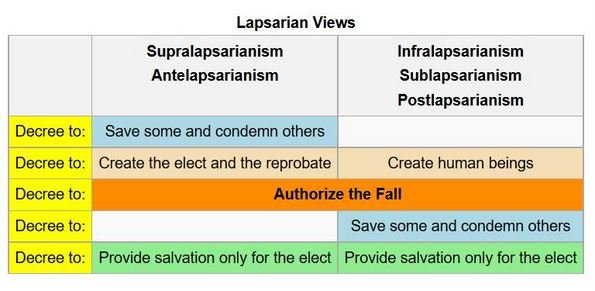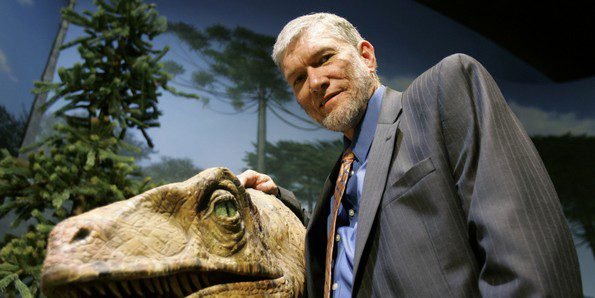
One of the biggest problems Christian apologists face is the fact that there is suffering in the world; that violence, bloodshed, famine, disease and death ravage all living things. The existence of these things suggests, at least to atheists and agnostics, that the Christian God of the Bible either doesn’t exist or he is an absentee creator who have no interest in these things.
When pressed on these issues, apologists usually take one of three approaches:
- God’s ways are not our ways; his thought are not our thoughts. Humans are finite beings who cannot understand why God does what he does.
- Humans are sinful, thanks to the fall of Adam and Even in the Garden of Eden. Suffering is the result of mankind’s fallen nature. Want to blame someone, blame man!
- Suffering is a problem that cannot be totally understood in this life, but its existence does not negate the existence of God. There are other evidences for God which prove his existence.
If you have engaged Evangelical zealots on the issue of suffering, you will always hear one or more of approaches mentioned above. Simply put, God can do whatever he wants to do, and humans are to blame for whatever befalls them, not God. If God is the divine creator, as Evangelicals say he is, then an argument can be made for him doing whatever he wants to do. However, Evangelicals further assert that their God is moral and just, and that his revealed morality and justice is found within the pages of the sixty-six books of the Protestant Bible.
Once appeals are made to the Bible, Evangelicals have a big problem on their hands. According to the inspired, inerrant, infallible Word of God, nothing happens apart from God’s decree, purpose, and plan. Calvinists and Arminians alike believe that God is sovereign and that he alone controls the universe. Thus, if Evangelical theology is taken to its logical conclusion, this means God is ultimately culpable for everything that happens — including sin, suffering, and death. When backed into a theological corner, Evangelicals will use all sorts of arguments in their attempts wiggle out of the obvious: that God, the first cause of all things, is culpable for everything done on planet Earth.
Some Evangelicals will argue that God created humans with free will. This means, then, that humans are responsible for their actions, not God. What a minute. Are Evangelicals saying that human will trumps the will of the Almighty; that humans can subvert what God desires to do; that God is forced to stand by and do nothing while humans exercise their free will? I thought God was omnipotent, omniscient, and omnipresent? Are Evangelicals saying that God is the biggest bad ass in the universe, yet he is powerless to stop humans from doing whatever it is they want to do?
Other Evangelicals — usually Calvinists — will use various lapsarian (the order of God’s decrees) arguments to extricate God from the vice of culpability. Here’s a chart that details the various lapsarian views:
These arguments, of course, are not found in the Bible. They are philosophical arguments used to justify various theological beliefs. Some Calvinists, realizing the huge problem the origin and existence of sin and suffering causes them, will take their theology to its logical conclusion and say that God created sin; that the fall of the human race was decreed by God; that God from before the foundation of the world only purposed to save a remnant of people; that the overwhelming majority of humans will die and go to hell, all because of the sin nature God gave them. Other Calvinists, denying the aforementioned logical conclusions, put their dancing shoes on, and with salsa-like motions attempt to dance around the problems of sin and suffering.
Regardless of the arguments made for humankind’s sinfulness and the subsequent fallout, none of them adequately answers the problem of non-human animal pain and suffering. Animals do not have a will or a soul. Animals have no ability to make moral or ethical choices — at least not in the sense that humans do. Thus, animals, in a Biblical sense, are not sinful. Yet, animals face untold violence, suffering, and death. As anyone who has watched Animal Planet or the National Geographic channel knows, the animal world is violent. Darwin’s theories of adaptation and survival of the fittest are on glorious display as animal species fight to live.
If animals are not sinners and God created them, why did God create animals to be so violent? Why do animals suffer through no fault of their own? Why are billions of animals annually raised and slaughtered using violent, torturous methods by humans who supposedly bear the imprint of God? Why do these same image bearers, hunt down animals for sport, causing untold terror to the hunted? What, if anything, in the animal world says to rational humans that the Christian God of love, mercy, and kindness exists?
In recent weeks, a hawk has been frequenting our back yard. He has developed an appetite for the pigs of the feeder — starlings. Starlings tend to be bullies, forcing other bird species to feed elsewhere. These starlings think they have nothing to fear, so they drop their guard as they voraciously scarf down bird seed. The visiting hawk takes advantage of their carelessness, swooping in and grabbing a starling dinner. One day, I watched him nail two starlings in the space of half an hour.
Now, I am not a big fan of starlings (or grackles). They love to raid our feeders, at the expense of other birds we feed. That said, their death at the hand of this hawk is a reminder of how violent the animal world is. Since sin and free will are not issues, why then did God create animals to be so violent? Why is there so much suffering and death? Billions and billions of animals annually die horrific deaths, sometimes suffering for great lengths before dying. What in this arrangement says to us that the Christian is who and what his followers say he is? From my seat in the atheist pew, it seems to me that there is no God.
Some Evangelicals will agree that animal suffering is problematic; that the violence and death is regrettable and troubling. But, that doesn’t mean the Christian God is a myth. There are OTHER arguments for the existence of God, so no one should reject God without considering these other arguments. God will, in eternity, explain everything to us, but, for now, we must trust that God is working out all things according to his purpose and plan. The problem, of course, is that God’s indifference to animal suffering and death points to the fact that if the Christian deity exists, he is lacking moral character; that he is willing to do nothing while animals suffer; that he has the power to end their suffering, yet he turns a blind eye and says, make my steak rare.

I can accept, from a theological perspective, that, thanks to sin, humans suffer and die. Their suffering is recompense for their disobedience. However, animals never sinned against God. They’ve done nothing to warrant suffering and death. Thus, a God who created animals knowing they would suffer and die is not a deity worthy of worship. This same God not only killed the entire human race — save eight — by drowning them, he also slaughtered all living things save the few animals gathered up by Noah (and birds capable of continuous flight for a month or longer and sea animals able to live in fresh water). What in the story of Noah says to us that the Christian God is kind, loving, and good? Nothing. God not only killed millions of men, women, and children, he also killed countless innocent unborn babies. He also killed who knows how many animals. Why? Because he could.
Some Christians will ignorantly argue that animals don’t feel pain, so it is impossible for them to, in the classic sense, suffer. Those of us who have spent time around animals, either as pet owners, farmers, or observers in the wild, know differently. Animals can and do feel pain, and they can and do suffer (so much so that we have them euthanized).
We can never directly experience the pain of another being, whether that being is human or not. When I see my daughter fall and scrape her knee, I know that she feels pain because of the way she behaves – she cries, she tells me her knee hurts, she rubs the sore spot, and so on. I know that I myself behave in a somewhat similar – if more inhibited – way when I feel pain, and so I accept that my daughter feels something like what I feel when I scrape my knee.
The basis of my belief that animals can feel pain is similar to the basis of my belief that my daughter can feel pain. Animals in pain behave in much the same way as humans do, and their behaviour is sufficient justification for the belief that they feel pain. It is true that, with the exception of those apes who have been taught to communicate by sign language, they cannot actually say that they are feeling pain_ but then when my daughter was a little younger she could not talk either. She found other ways to make her inner states apparent, however, so demonstrating that we can be sure that a being is feeling pain even if the being cannot use language.
To back up our inference from animal behaviour, we can point to the fact that the nervous systems of all vertebrates, and especially of birds and mammals, are fundamentally similar. Those parts of the human nervous system that are concerned with feeling pain are relatively old, in evolutionary terms. Unlike the cerebral cortex, which developed only after our ancestors diverged from other mammals, the basic nervous system evolved in more distant ancestors common to ourselves and the other ‘higher’ animals. This anatomical parallel makes it likely that the capacity of animals to feel is similar to our own.
….
The nature of pain is perhaps even more complex in animals. How pain is sensed and the physical processes behind this are remarkably similar and well conserved across mammals and humans. There are also many similarities in pain behaviours across the species, for example they may stop socialising with people and/or other animals, they may eat less, they may vocalise more and their heart rate may rise. The capacity of animals to suffer as sentient creatures is well established and enshrined in law in many countries, however we don’t understand well how they actually experience pain.
Some aspects of the experience and expression of pain are not likely to be the same as in humans. First, animals cannot verbally communicate their pain. Dogs may yelp and you may notice behaviour change but what about your pet rabbit, cat, tortoise or horse? Animals rely on human observers to recognise pain and to evaluate its severity and impact. Without the ability to understand soothing words that explain that following surgery to repair a bone fracture, their pain will be managed (hopefully) and will subside, animals may also suffer more when in pain than we do.
The debate around animals’ capacity to experience pain and suffer raged in the 20th century, but as we developed a greater understanding of pain, and studied its impact on the aspects of animal life that we could measure, we veterinary surgeons, along with many behavioural and animal scientists, recognised the significant impact of untreated pain, and we now believe this experience causes them to suffer.
….
The World Small Animal Veterinary Association established the Global Pain Council and released a document detailing the existence of animal pain and how it should be treated. The document’s introduction states:
The ability to experience pain is universally shared by all mammals, including companion animals, and as members of the veterinary healthcare team it is our moral and ethical duty to mitigate this suffering to the best of our ability. This begins by evaluating for pain at every patient contact. However, and despite advances in the recognition and treatment of pain, there remains a gap between its occurrence and its successful management; the inability to accurately diagnose pain and limitations in, and/or comfort with, the analgesic modalities available remain root causes. Both would benefit from the development, broad dissemination, and adoption of pain assessment and management guidelines.
….
The science is clear on the matter: animals do feel pain and suffer. Only those wanting to protect God’s character and moral virtue deny their existence. Thus, because innocent animals can and do suffer, feel pain, and die violent deaths, I am left to conclude that the Christian God is not loving, kind, or good. He is not, for this reason alone, a God worthy of our fealty, devotion, and worship. Animal suffering, then, is yet another reason I doubt the existence of said God. And since there’s no God that can intervene, it is up to humans to do all they can to lessen animal suffering and pain. How we treat the least of these says much about our character and values. Show me a man who mistreats animals and kills for sport, and I will show you a man who is lacking in character. The path to peace requires love and compassion for all living things, not just those who agree with us or who offer some benefit to us.
Let me conclude this post with several quotes from Gandhi:
Strictly speaking, no activity and no industry is possible without a certain amount of violence, no matter how little. Even the very process of living is impossible without a certain amount of violence. What we have to do is to minimize it to the greatest extent possible.
It ill becomes us to invoke in our daily prayers the blessings of God, the Compassionate, if we in turn will not practice elementary compassion towards our fellow creatures.
There is little that separates humans from other sentient beings — we all feel joy, we all deeply crave to be alive and to live freely, and we all share this planet together.
A good read on the issue of suffering is Bart Ehrman’s book, God’s Problem: How the Bible Fails to Answer Our Most Important Question — Why We Suffer.
About Bruce Gerencser
Bruce Gerencser, 60, lives in rural Northwest Ohio with his wife of 39 years. He and his wife have six grown children and eleven grandchildren. Bruce pastored Evangelical churches for twenty-five years in Ohio, Texas, and Michigan. Bruce left the ministry in 2005, and in 2008 he left Christianity. Bruce is now a humanist and an atheist. For more information about Bruce, please read the About page.
Bruce is a local photography business owner, operating Defiance County Photo out of his home. If you live in Northwest Ohio and would like to hire Bruce, please email him.
Thank you for reading this post. Please share your thoughts in the comment section. If you are a first-time commenter, please read the commenting policy before wowing readers with your words. All first-time comments are moderated. If you would like to contact Bruce directly, please use the contact form to do so.
Donations are always appreciated. Donations on a monthly basis can be made through Patreon. One-time donations can be made through PayPal.






